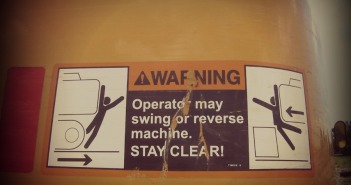

The Top 5 Questions You Should be Asking Before Purchasing Heavy Equipment
Buying used heavy equipment can be a stressful and arduous task. How do you really know if you are getting what you are paying for and that there are no hidden problems with the machine that could lead to hefty repair costs?
As well as carrying out a full inspection of the equipment and making sure you have someone present that is knowledgeable in how the machinery handles and works, it is also important to ask the right questions to get as much detail as possible about your purchase. This post will guide you through the five most important questions to ask before making a heavy equipment purchase. By answering these five questions, you can evaluate whether the machinery is going to meet your needs, whether you are buying from a reliable seller, and whether you are purchasing it at a fair price.
1. Ask the current owner for maintenance records and a record of operation hours: If the machinery has been kept in good condition, the owner should be able to provide a full and complete history of service and maintenance. If there are long periods where the heavy equipment has not been serviced, you’ve got to question the working condition. Please note that although an extensive history is preferable, a maintenance history can sometimes get lost when changing owners. Question the seller on how many previous owners the machinery has had and make sure that they can at least provide a history of maintenance for as long as they have owned the equipment for.
Make sure you check the record of operation hours too. If the machinery has been operated frequently but has an extensive maintenance history; it could be a better purchase than equipment that hasn’t been used as much but has also not been serviced much either.
2. Ask the current owner if you have any guarantee after the purchase of your machinery if there are any problems: When buying used heavy equipment, there is financial risk involved. The primary reason for buying used machinery is to save on big expenses, not incur them. So the more risk that can be taken out of the process the better. Always ask about a guarantee or service warranty. Many reputable dealers will offer some sort of guarantee, especially if they have carried an inspection on the equipment themselves.
It is always better to buy from a dealer or a private seller that will offer some sort of guarantee if the machinery is not in the working condition that the inspection stated. This may state that they will pay for any repairs needed or that they will allow you to return the equipment for a complete refund.
3. Does the seller have previous customers that can tell you about their experience with the seller and the equipment they bought? You can either do this before going to the seller or ask the seller directly. Most reputable sellers will give you a history of their sales and customers so that you can get information on the reliability of the seller and the machinery the sell. If they refuse you this information then you should be careful about buying from them. Having reliable a source that can validate a seller allows you to make a purchase with less risk involved.
4. Are there any additional fees when buying this heavy equipment? Many sellers will separate out the cost of the equipment and other fees incurred such as transportation fees, time investment, buyer’s fees etc. Although there is no problem with this and you should expect some fees associated with purchasing, it is important to know the total you will have to pay.
Before going to see the equipment and discuss pricing and fees, do some research into transportation costs. Whether this is arranged through the seller or you have to organise this privately, it is good to have an estimate of how much it will cost. That way, you can compare it to what the seller is offering and see if it is a fair price. You will also know how much you can afford to pay for the equipment with all fees included.
As with transportation fees, it would be wise to research average fees for time investment, broker’s fees and buyer’s fees.This will change with the price of the equipment, the seller, the location, etc. Go armed with research so that you can spot if any excessive fees have been added to your purchase.
5. ALWAYS ask to test operate the heavy equipment if your are seriously thinking about buying: If you only take one thing from this post, it would be to test machinery before you buy. You must always ask to test operate. Firstly, this will show you if the machinery actually starts. A no start engine or an engine that struggles to start and produces a lot of smoke is an immediate red flag warning. If you are familiar with operating this type of machinery, a test will allow you to see any differences in controls and whether the machine performs as to would expect.
If you are not an expert in the handling of the equipment then take someone who has experience. They will be able to tell you if the machinery operates as expected, if there are any problems that could lead to expensive repairs and most importantly whether the heavy equipment meets your needs.
These five questions will be endlessly helpful in the search for used heavy equipment. Remember that you are making a financial commitment and you don’t want to risk having to pay out more than expected in repairs. If you have a question, don’t be afraid to ask. If the seller is withholding information, question why this might be. Most importantly, never commit to buying until you are happy that you have all the information you need to make an informed decision.


